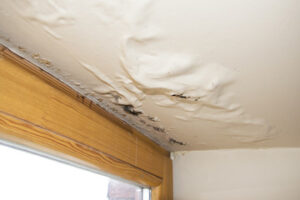What Can I Expect After a Flood? Water damage is one of the most devastating losses a homeowner can face. It causes various processes that cause destruction, such as rotting of wood, mold and bacteria growth, rusting of steel, swelling of composite woods, and delamination of materials. The following are the most common types of losses and how to protect your home and belongings after a flood. Listed below are some things to know about water damage.

First of all, water damage happens quickly. Water leaks can quickly soak through your carpet and everything in your home. This water can warp your furniture and ruin your carpets. Likewise, black water is biohazardous and must be removed from your home. This means hiring a professional water damage restoration company right away to prevent further damage. And, of course, there are the monetary concerns of repairing the property. Water damage can cause serious health risks and can result in a large liability issue.
Water damage can also cause a home to be uninhabitable. If this happens, you may need to relocate to another place until the damage is repaired. In such a situation, you should add any expenses for temporary accommodation to your insurance claim. Once the damage has been assessed, the claims adjuster will come to your home and determine the cause of the damage. You can also make your home safer by sealing all windows and doors and removing any trees that may block an underground aqueduct system. In addition, planting beds should be angled downward to prevent standing water and direct rainwater runoff.
Whether or not you’re in need of a water damage restoration company, hiring the right team is essential. The process of water damage restoration can be stressful and costly, but experienced professionals can get your home back in working order quickly. The cost of the process varies depending on your insurance policy and the location of the damage. In addition, you’ll want to consult with your insurance provider to make sure that you are protected from future flood damage.
A home is most susceptible to water damage if the plumbing system is faulty or has a leak. Even a small leak can cause serious problems in a home. Because water spreads quickly, it soaks into floors, walls, soft furnishings, wooden doors, and windows. Water damage can also affect the electrical system. In addition to these problems, your home will smell awful and be difficult to keep clean. This can also affect your family’s health.
Most homeowners insurance policies don’t cover water damage caused by a sewer backup. Although it may not cause immediate damage, it can still cause significant damage. Sewer backups are also excluded from home insurance policies, but you can add this coverage to your policy to avoid further expenses. Once you’ve got your policy, you’ll be happy you did! Once you’ve added sewer backup coverage, you’ll be on your way to a new, stress-free life.
Keep an eye on your home’s water bills. If your bills are consistently high, then you might have a plumbing leak. Check the water pressure in your home. If it is too high, the pipes might burst. It’s best to check with your insurance company to see if it covers water damage. In case your water pressure is high, you should shut off the water before the damage occurs. And lastly, keep a copy of any receipts. Having proof of all the damages is important.
In most cases, your insurance policy will cover water damage due to floods, but this is not always the case. For example, a homeowner may not be covered for loss of income due to severe weather. In such cases, you should purchase separate flood insurance. You can buy this policy through the federal government’s National Flood Insurance Program or from a private insurer. Make sure to read the fine print in your policy before signing it. And don’t forget to check your policy.
Despite these risks, water damage can be repaired relatively quickly if you work with a reputable water damage restoration company. They will contact your insurance provider so that you can reduce additional expenses while the repairs are being completed. And if you can’t find a qualified company, you should consider hiring a different company. Water damage, as defined by the insurance industry, falls under several categories. Generally, category one damage involves leaks from water pipes and appliances.
